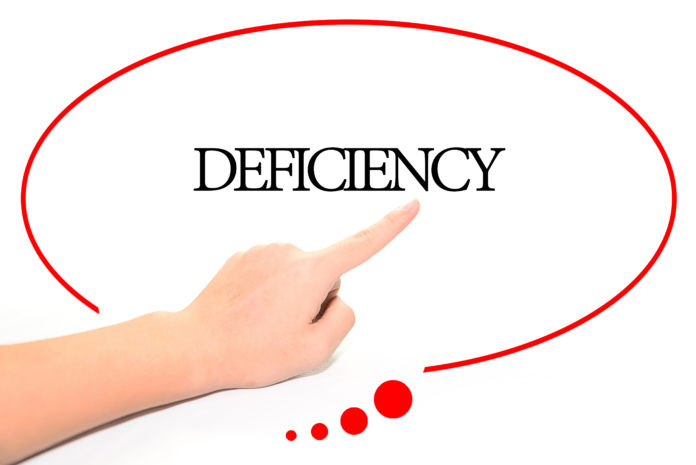Protest challenging the agency’s evaluation of the awardee’s revised proposal is sustained. In its initial evaluation, the agency assigned the awardee two deficiencies for (1) failing to propose enough hours for administration of the contract, and (2) failing to propose enough hours for the actual work performed under the contract. Following discussions, the agency determined that the awardee had addressed both of these deficiencies. GAO, however, disagreed. The awardee’s final proposal only addressed the second deficiency assessed for not proposing enough hours for the actual contract work. GAO found that the agency had unreasonably determined that revisions to address the second deficiency in work hours also addressed the first deficiency assessed for proposing too few administrative hours.
The Navy posted a solicitation seeking guard services at a naval air station. After receiving several proposals, the Navy established a competitive range that included Patronus Systems, Inc. and W&W Protection, LLC. Following an initial evaluation, the Navy assessed one weakness to Patronus’ proposal and two deficiencies to W&W’s proposal. After conducting discussions, the Navy found that Patronus had resolved its weakness and W&W had resolved its deficiencies. The Navy awarded the contract to W&W, finding that it had the lowest-priced technically acceptable offer. Patronus protested.
Patronus first alleged that the Navy failed to conduct a price a realism analysis required by the solicitation. But GAO found that the solicitation did not require the Navy to perform a price realism analysis. The solicitation stated that the Navy “may consider whether prices are realistic in relation to the work to be performed, reflect a clear understanding of the requirements, and are consistent with the other portions of the proposal.” This sentence merely provided that the Navy reserved the right to conduct an price realism; it did not require a price realism analysis
Next, Patronus contended that the Navy unreasonably concluded that W&W’s final proposal resolved a deficiency identified in the initial evaluation for failing to include sufficient managerial and administrative time. GAO agreed.
The solicitation set forth the Navy’s requirements in a series of “Spec Items”. Tasks related management and administration of the contract—e.g., training, scheduling—were set forth in Spec Item 2. Tasks related to the work performed under the contract—that is, the actual guard services—were listed under Spec Item 3. In the initial evaluation, the Navy assessed a deficiency to W&W because the hours the company proposed hours for a project manager that were insufficient to the government’s estimates for Spec 2 hours. The Navy assesses a second deficiency because W&W did not adequately explain how its scheduling addressed non-productive activities—i.e., meal breaks, shift changes, sick leave, and the like.
Following discussions, W&W revised its proposal to ensure that it included relief staff hours that addressed the deficiency assessed for not scheduling enough time for non-productive activity. The Navy determined that the relief staff hours W&W proposed were Spec 3 hours. But the Navy also found that these relief staff hours were Spec 2 hours that resolved the deficiency assigned for not proposing enough hours for a project manager.
GAO found that the agency’s decision to apply the relief hours to the Spec 2 deficiency unreasonable. W&W’s description of the work provided by the relief staff did not include any reference to a project manager, or to any of the administrative tasks included in Spec 2. The technical evaluation failed to explain why the evaluators considered these labor hours to be Spec 2 hours. Without such an explanation, it was unreasonable for the Navy to have found that W&W resolved the deficiency assigned to the lack of Spec 2 hours.
Patronus also argued that the Navy unreasonably ignored inconsistencies between the number of labor hours proposed in W&W’s technical proposal and the hours proposed in its price proposal. The Navy’s SSEB had found that inconsistencies between the hours proposed in W&W’s price and technical proposal were immaterial because the labor hours in each proposal exceeded the solicitation’s minimum requirements.
GAO found the Navy’s position untenable. GAO had already found that the Navy had misevaluated relief hours as Spec 2 hours. Given that the assessment of W&W’s proposed hours was already flawed, the Navy could not claim that inconsistencies between the hours proposed in the technical and price proposals was immaterial. A source selection based on an error in the underlying evaluation is unreasonable.
The Navy attempted to argue that even if there were discrepancies between W&W’s technical and price proposals, Patronus had not been prejudiced because Petronus also had discrepancies between the hours proposed in its technical and price proposals. But GAO found that while GAO had treated each offeror similarly with respect to these deficiencies, this did not make the evaluation reasonable. If the agency did not resolve discrepancies between offerors’ technical and price proposals, it was not clear how the agency or either offeror could reach a meeting of the minds regarding the terms of any resulting contract.
Patronus is represented by Katherine S. Nucci, Scott F. Lane, and Jayna m. Rust of Thompson Coburn LLP. The intervenor, W&W, is represented by Jeffrey Weinstein of The Weinstein Law Group PLLC. The agency is represented by Susan E. Sharp of the Navy. GAO attorneys Heather Weiner, Heather Self, and Jennifer Westfall-McGrail participated in the preparation of the decision.




